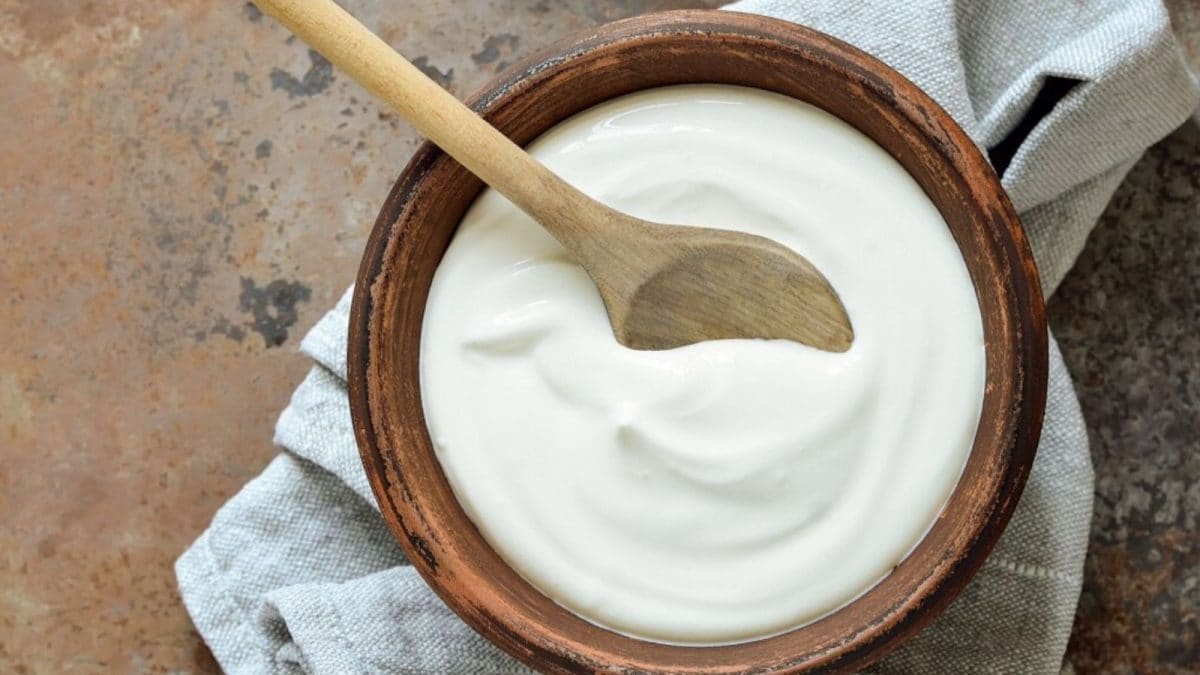Last Updated:
Spain’s Maria Branyas Morera lived to 117, and scientists say her secret wasn’t magic genes. It was balance, good health, and yogurt three times a day.

Yoghurt kept her gut microbiome youthful and rich in beneficial bacteria.
Living to 117 years and 168 days sounds almost mythical, but for Maria Branyas Morera, it was reality. Born in San Francisco in 1907 and later settling in Spain, Maria became a subject of fascination for scientists studying longevity. Researchers from the Josep Carreras Leukaemia Research Institute investigated her biology to uncover the secrets behind her extraordinary life, revealing that it wasn’t a single ‘magic gene’ but a blend of lifestyle, biology and a humble daily habit: eating yoghurt three times a day.
For over two decades, Maria enjoyed three servings of yoghurt daily – morning, afternoon and night. This wasn’t part of any fad; it was simply something she liked. Scientists discovered that her gut microbiome, the ecosystem of bacteria living in the digestive tract, was unusually youthful. Her gut was rich in Bifidobacterium, a beneficial bacterium known to reduce inflammation and support metabolism.
Yoghurts containing strains like Streptococcus thermophilus and Lactobacillus bulgaricus, which Maria consumed regularly, likely helped maintain this microbial balance. According to a 2024 study published in Cell Reports Medicine, this consistent intake of probiotic-rich yoghurt may have reshaped her gut environment, keeping it resilient and youthful – a key factor in healthy ageing.
Gut Health Over Genetics
Maria’s gut health stood out remarkably for her age. Normally, bacterial diversity declines with age, often leading to inflammation and chronic diseases. But Maria’s microbiome was anti-inflammatory, supporting her metabolism, immune system, and brain health. Researchers believe this played a major role in preventing age-related illnesses such as diabetes, heart disease and dementia.
Dr Manel Esteller, who led the study, noted that her yoghurt habit may have contributed to maintaining a “young gut,” reducing body fat and insulin resistance, both critical markers for longevity.
Extraordinary Biology
Beyond her diet, Maria possessed rare genetic variants that offered protection against common diseases. Her DNA supported strong immunity, cardiovascular health and cognitive function. Interestingly, she lacked several gene variants linked to shortened lifespan. Her lipid profile was exceptional, with high HDL (“good” cholesterol) and low triglycerides, helping maintain a healthy heart well into her later years.
Even with short telomeres, usually a sign of ageing, Maria showed no major illnesses, proving that ageing and disease aren’t always inseparable.
Lifestyle And Mental Well-Being
Maria led a grounded, peaceful life. She never smoked or drank, followed a Mediterranean-style diet, and took daily walks in the countryside. She remained mentally active through music, socialising and curiosity. Experts suggest that these habits, combined with her diet, helped keep chronic inflammation low and her immune system active.
A Lesson In Longevity
Maria’s story is less about chasing extreme age and more about focusing on health span – the years lived in good health. Prof. Claire Steves from King’s College London emphasised that her longevity was no fluke but the result of multiple systems working in harmony: gut, immune system, metabolism and genes.
Dr Esteller summarised, “She was lucky from the start, but she added years through the way she lived.” Maria Morera’s life shows that sometimes, longevity comes not from grand interventions but from small, consistent habits. Her daily yoghurt became a quiet revolution inside her body, a testament to the power of balance, routine and a kind way of living.
Delhi, India, India
October 29, 2025, 16:31 IST







